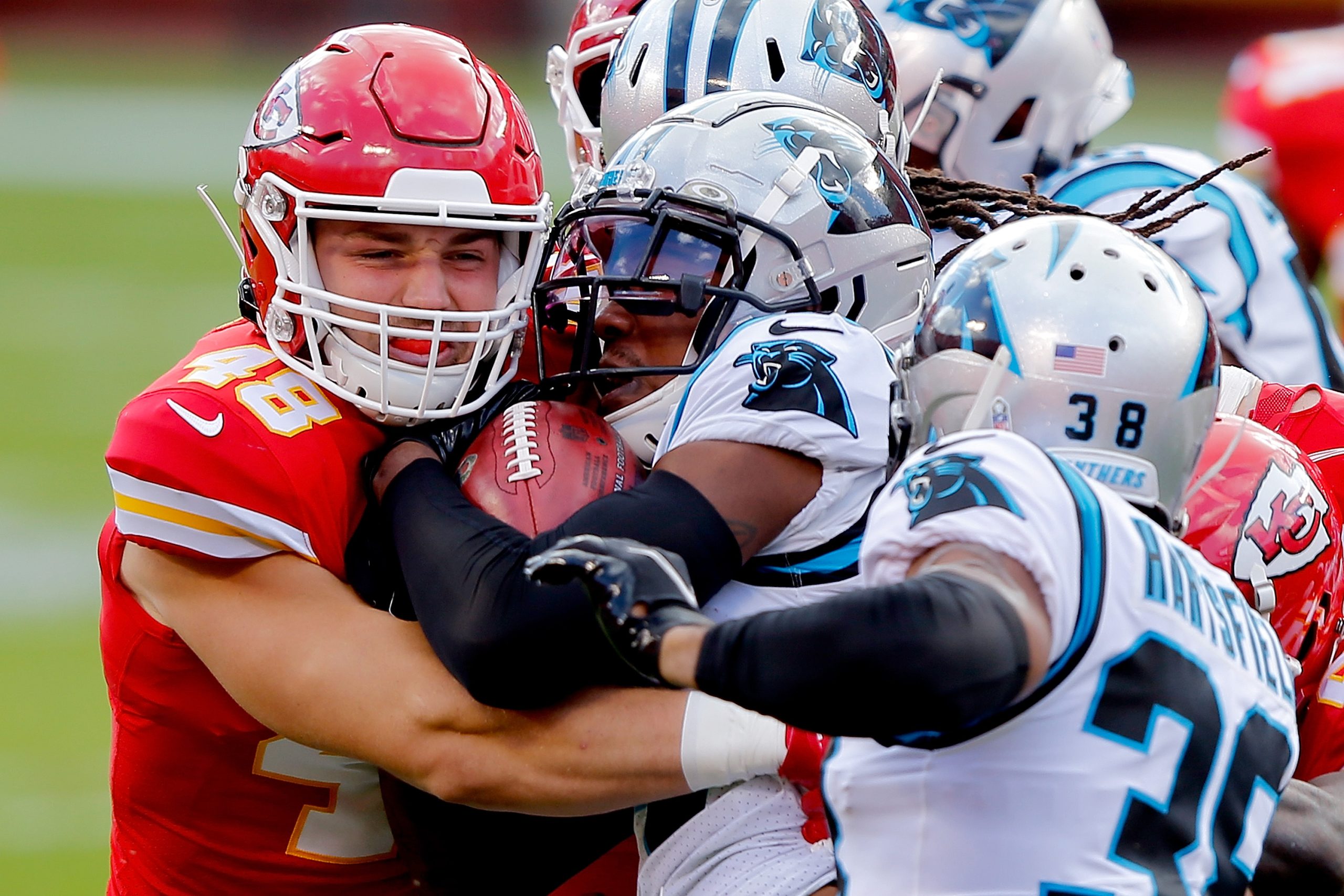NFL
How Do Taxes Work in the NFL?

On average, NFL players don’t make as much as their MLB and NBA counterparts. Yet by other standards, pro football players still earn a ton of money. The average salary is around $2 million per year. Star players and league veterans often make significantly more. Of course, not all of the money stays with the athletes. A portion disappears in the form of taxes.
Depending on where a player lives and competes, those taxes can take a significant chunk out of their paycheck. Let’s look at how taxes work in the NFL today.
Not all states are created equal for NFL players
RELATED: Who Is the Lowest-Paid Player in the NFL?
On the surface, an NFL player’s tax situation isn’t that different from most people’s. Like anybody else, they’re responsible for paying federal income tax, though at a far more daunting rate of 41.95%. They must also pay income taxes in whatever state they live in. Unfortunately, not all states are appealing from a tax perspective.
While California may have an ideal climate, it also boasts a tax rate of 13.3% — the worst in the entire country, according to Smart Asset. As a result, those who play for the LA Chargers, LA Rams, Oakland Raiders, or San Francisco 49ers will see the greatest percentage of their paychecks disappear toward state taxes.
Chiefs players face an equally daunting tax hit; they must contend not only with Missouri state taxes but also local taxes. The most tax-friendly NFL division is the AFC South. Three of the teams are located in states with no state-level income tax. These teams are far more financially appealing. At least one study found that they have a correspondingly greater chance of reaching the playoffs than teams in high-tax states, according to CBS News.
The dreaded jock tax
RELATED: Could Patrick Mahomes Change the Structure of NFL Contracts Forever with His Next Deal?
The tax situation for an NFL player gets even more complicated when you factor in the “jock tax.” This was implemented back in the ’80s and ’90s in response to the overwhelming popularity of NBA superstar Michael Jordan. States other than Illinois felt they deserved a cut of the revenue that Jordan generated when he played in their states.
The jock tax stipulates that players must pay the relevant taxes for any states that they happen to play a game in. For example, when New England Patriots quarterback Cam Newton travels to Oakland to play the Raiders, he is responsible for paying California state taxes on the money he gets paid for that game.
In other words, players must file separate tax returns for every state where they play an away game — unless that state lacks an income tax, like Florida. As you can imagine, this complicates things. NFL players get paid on a game-by-game basis, which means a player who stays healthy and active all season will receive 16 checks. Each of the away-game checks may be a different amount due to varying state income taxes.
The confusion and stress of NFL taxes
Most NFL players entering the league have never heard of the jock tax. Those who are coming fresh out of college may not have even filed a tax return before in their life. As a result, they must quickly find a savvy and trustworthy accountant to help them manage their newfound wealth.
Even tax professionals get confused sometimes, however, especially when players get traded to teams whose states have different tax requirements. That was the case with Brock Osweiler in 2017, according to Sports Illustrated. The jock tax can also be a serious financial burden for a team’s lower-paid staff members, as Bloomberg News reports. They have to pay out-of-state taxes just like players.











